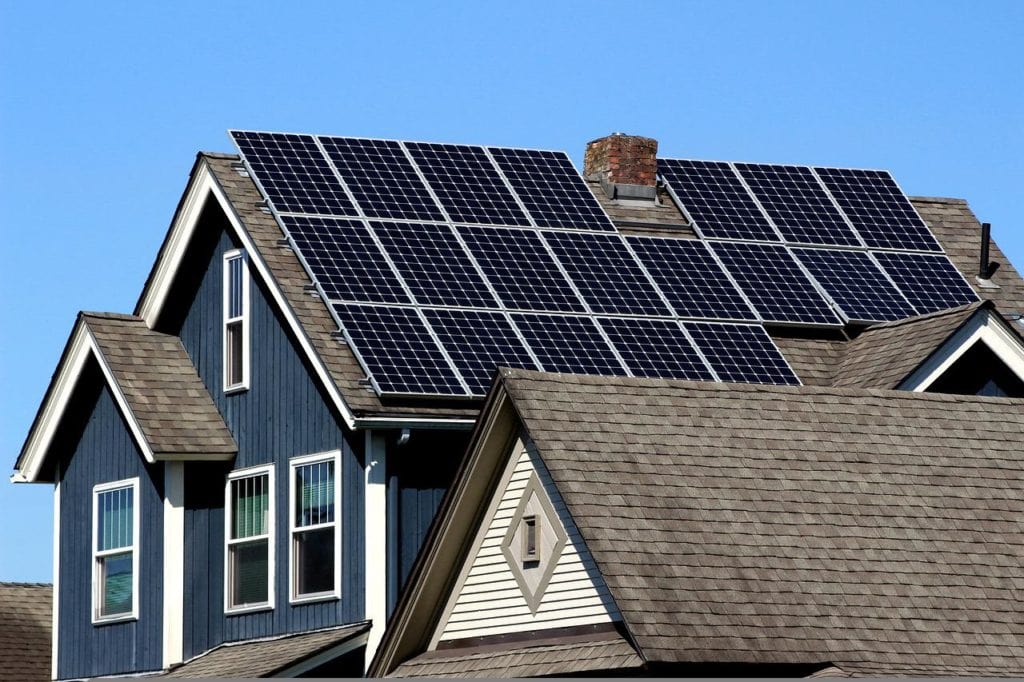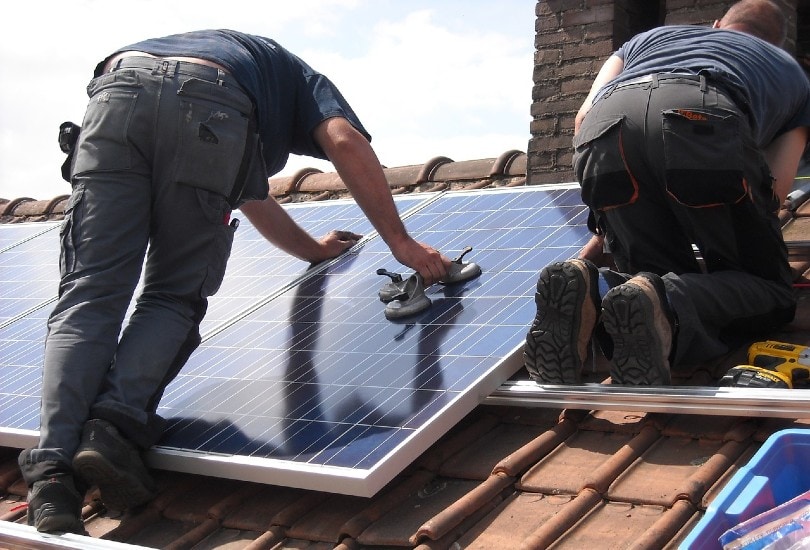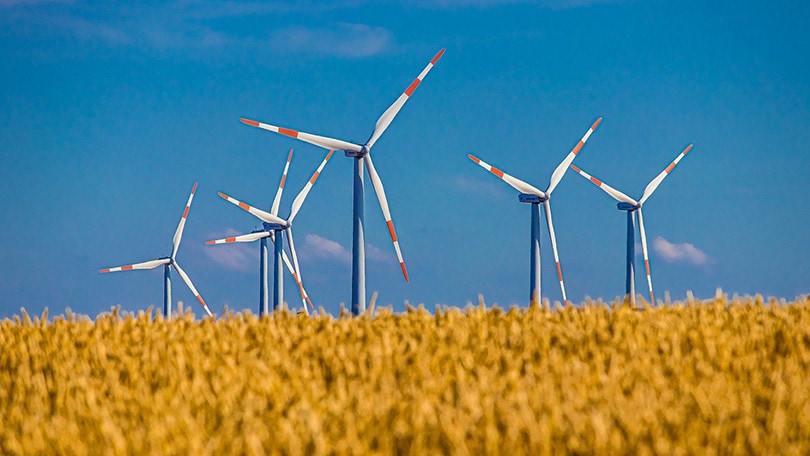What Is Energy Efficiency? Definition Explained
-
Pete Ortiz
- Last updated:

When you think about energy efficiency, what comes to mind? If you’re like most people, you probably think of something like keeping the thermostat low in the winter and high in the summer or turning off lights when you leave a room. These are all good examples of energy efficiency, but there is much more to this concept. In its simplest terms, energy efficiency is using less energy to produce the same services or results.
Energy efficiency can be achieved through several different strategies. In homes and businesses, energy efficiency also helps reduce utility bills by lowering usage levels, which reduces charges based on peak demand. Through these measures, we can use less energy and still get the same results. Let’s take a closer look at what exactly energy efficiency is and how it works.
How Does It Work?
Energy efficiency is often defined as using less energy to provide the same service. For example, a more energy-efficient refrigerator uses less electricity than a less efficient model to achieve the same cooling effect.
When applied to buildings, energy efficiency can be achieved through various means, such as improved insulation and air sealing, high-efficiency heating and cooling systems, and energy-efficient lighting.
In general, energy efficiency is achieved when appliances or other devices consume less energy to achieve the same goal. For example, an energy-efficient light bulb produces the same amount of light as a traditional incandescent bulb but uses less electricity.
Similarly, an energy-efficient refrigerator uses less electricity than a traditional model to achieve the same cooling effect.

What Are the Different Types of Energy Efficiency?
Energy efficiency is often thought of as a way to save money. However, it can also have other benefits, such as reducing pollution and improving comfort. When energy-efficiency measures are implemented, they can help to reduce greenhouse gas emissions and other pollutants.
Additionally, energy-efficient buildings often have better indoor air quality, which can improve occupant health and comfort.
Let’s look at some of the different types of energy efficiency and how each works to provide these benefits:
- Improving Insulation and Air Sealing: This helps to prevent heat loss in winter and heat gain in summer, making it easier for heating and cooling systems to maintain comfortable indoor temperatures.
- Installing High-Efficiency Heating and Cooling Systems: High-efficiency furnaces, boilers, and air conditioners use less energy to provide the same level of heating or cooling as traditional models.
- Using Energy-Efficient Lighting: Compact fluorescent light bulbs (CFLs) and light-emitting diode (LED) bulbs use less electricity than traditional incandescent bulbs and last longer, as well.
- Solar Panel Systems: Solar panels collect energy from the sun and convert it into electricity. This can be used to power lights, appliances, and other devices in a home or office.
- Wind Turbines: Wind turbines work similarly to solar panels, but they use wind energy to generate electricity.
- Geothermal Heat Pumps: Geothermal heat pumps use the earth’s constant temperature to help heat and cool a building.
There are many other ways to make your space more energy efficient—these are just a few of the most common. If you’re interested in learning more, we suggest contacting a local energy efficiency expert. They can help you assess your needs and find the best solutions for your home or business.

Where Is It Used?
Energy efficiency can be applied to almost all forms of energy, including electricity, gasoline, and even food. In almost every part of our daily lives, we’re utilizing energy efficiency to make the most of what we have.
In homes and businesses, energy efficiency is used in almost every aspect of daily life. It’s used to produce and distribute power, generate and store heat, cool and heat indoor and outdoor spaces, run appliances, and much more.
Energy efficiency is also used in transportation to reduce fuel consumption in vehicles and improve their performance while reducing emissions. In food production, energy efficiency can reduce water and fertilizer use, as well as CO2 emissions from manure.
As discussed, energy efficiency is even used to create renewable energy sources like solar, wind, and hydroelectric power. With so many benefits, it’s no wonder more people are turning to cleaner and safer ways to produce energy.

Advantages of Energy Efficiency
Let’s get specific for a moment and focus on the advantages that energy efficiency brings to the table. While it’s true that it is safer and cleaner than some traditional methods, that’s not enough to win over every consumer or enterprise. They need to gain something tangible. Does energy efficiency offer such things? Let’s find out.
- Reduced Energy Consumption: By using energy efficiency, you can lower your consumption and reduce your bills. In the long run, it can also help you reduce your carbon footprint.
- Increased Efficiency: By making your systems more efficient, you can make better use of your existing resources. This can improve the resiliency of your systems during times of crisis.
- Greater Sustainability: Energy efficiency can help you produce less waste, use fewer natural resources, and lower your carbon footprint.
All of these three things have the potential to lower your out-of-pocket expenses. And that’s often all it takes for consumers to take notice.
Disadvantages of Energy Efficiency
Like anything else, energy efficiency is not without its detractors. The advantages outlined above cannot be argued, but at what cost? Read on to find out.
- Less Power: Because energy efficiency is about using less energy for the same result, it can actually result in less power overall. While this is a good thing for the environment, it might not be ideal for certain systems or situations, such as when you need a lot of power in a short period of time.
- Less Speed: By using less energy, processes can take longer. For example, waiting for your computer to boot up takes much longer if you use a laptop that conserves battery life by shutting down after a period of inactivity.
For many consumers, the trade-off is well worth it. But for others, they can’t afford to sacrifice things like power and speed. And the same holds true for many businesses and industries.

Frequently Asked Questions (FAQs)
What are some other benefits of energy efficiency?
The benefits of energy efficiency include reduced energy consumption, greenhouse gas emissions, and costs. Energy efficiency can also improve the security of energy supplies by reducing dependence on imported fuels.
What are the barriers to energy efficiency?
The barriers to energy efficiency include lack of awareness, high initial investment costs, lack of financing, and regulatory hurdles.
What policies can help overcome these barriers?
Policies that can help overcome these barriers include tax incentives, government mandates, subsidies, and standards.

How is energy efficiency being promoted?
Energy efficiency is promoted through a variety of measures, including public awareness campaigns, labeling programs, voluntary agreements, and government regulations.
Conclusion
The definition of energy efficiency is relatively simple: It is the ratio of the useful output of a device or system to the energy inputted into that device or system. In other words, it’s a measure of how well something uses energy.
How can you make your home more energy efficient? If you are committed to saving energy—and money—there are a number of ways to make your home more energy efficient. Start with the tips provided in this article and then explore additional ways to conserve energy and improve your home’s energy efficiency.
Featured Image Credit: NxTide, Pixabay
Contents



